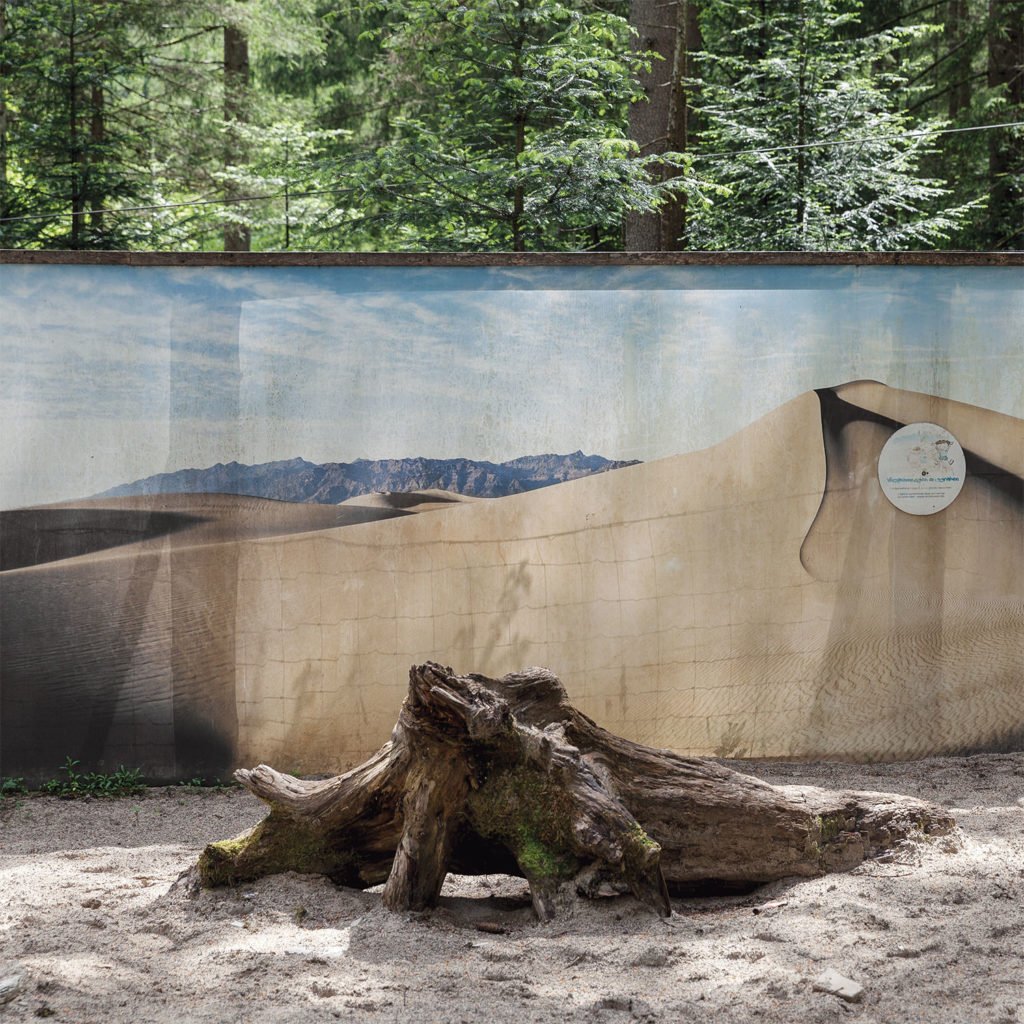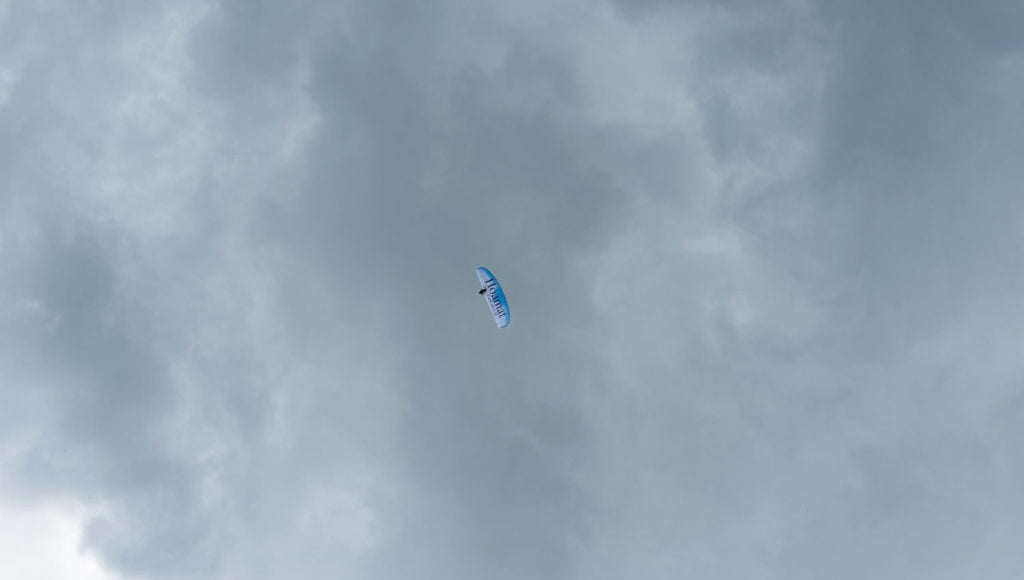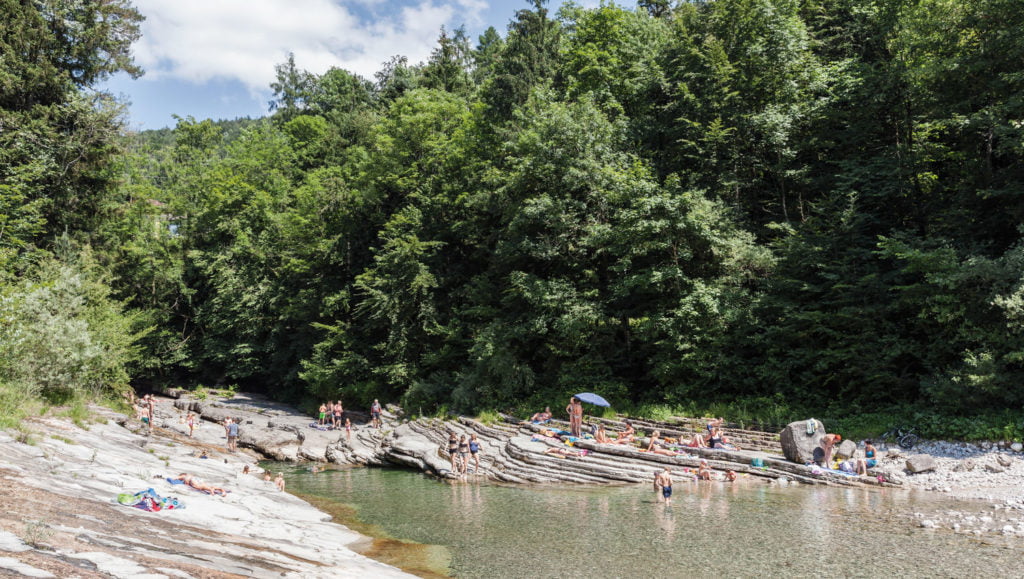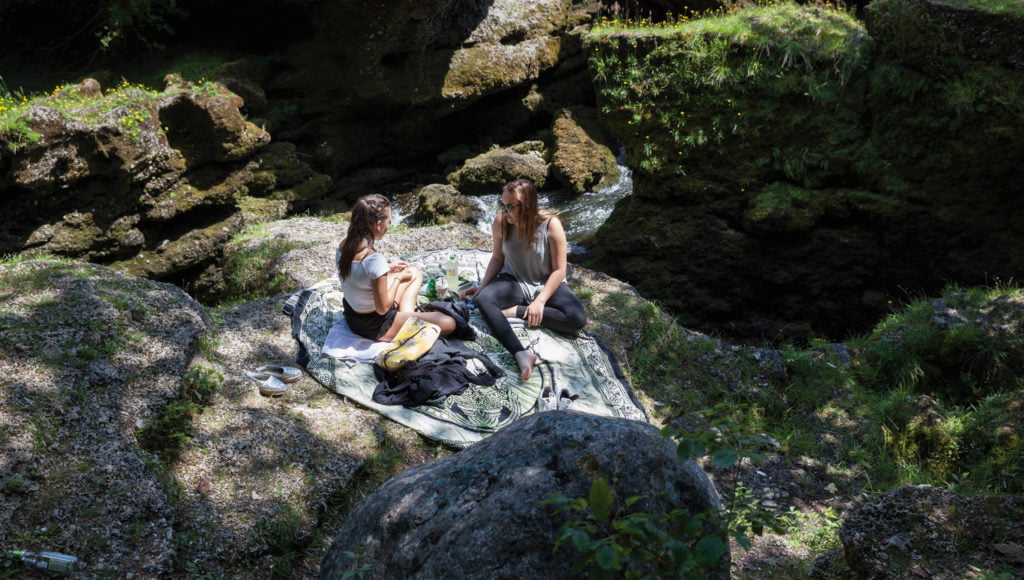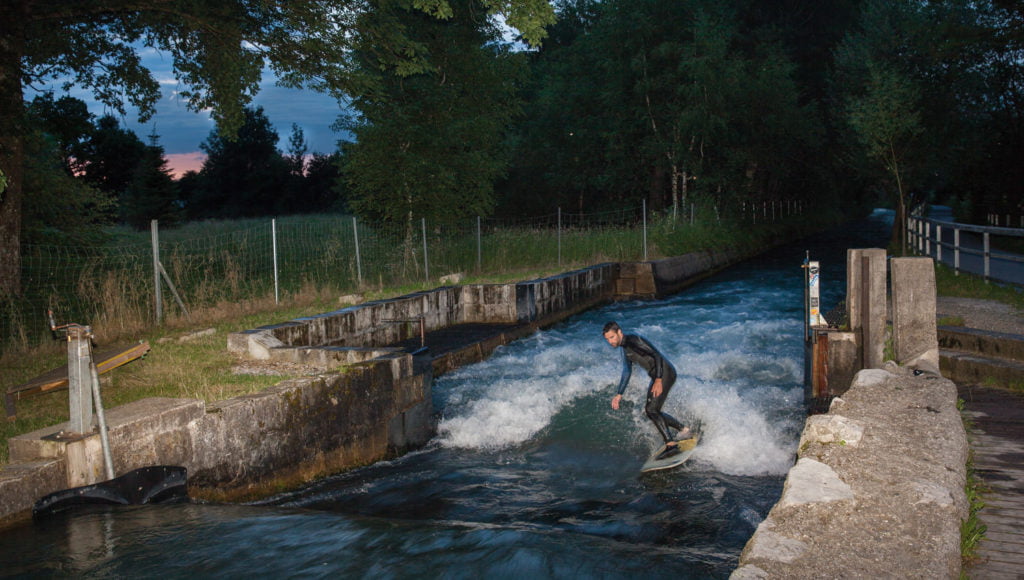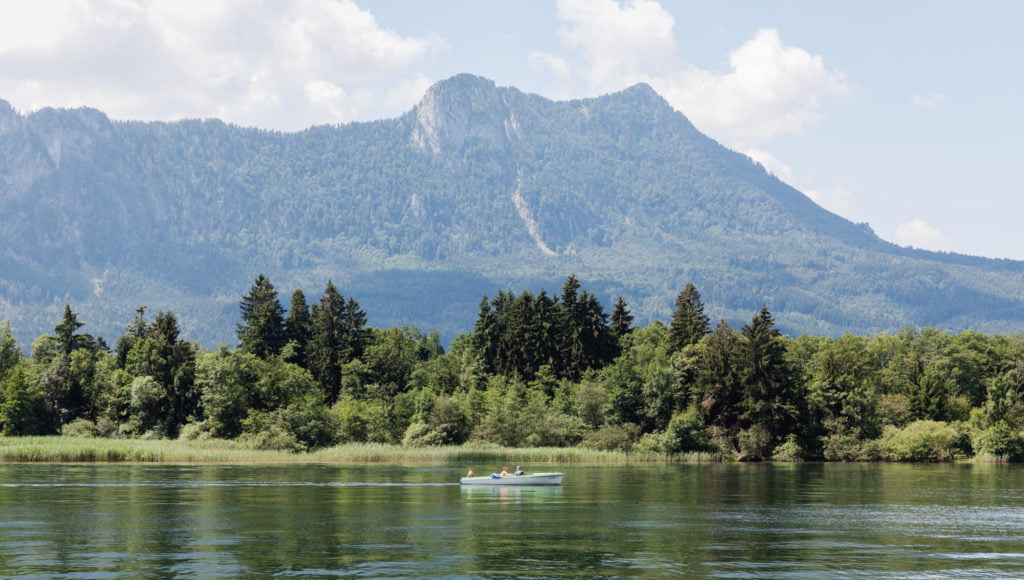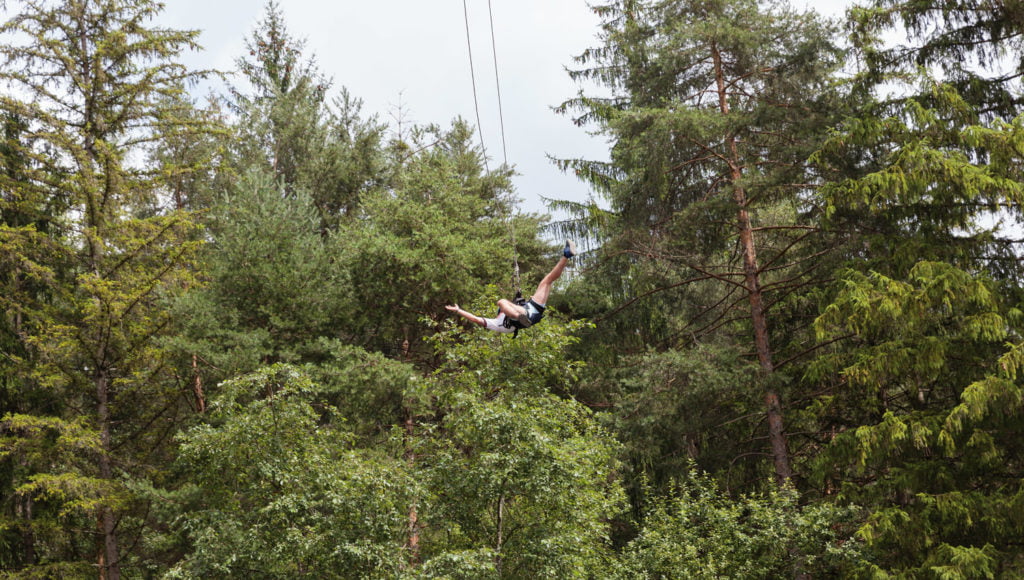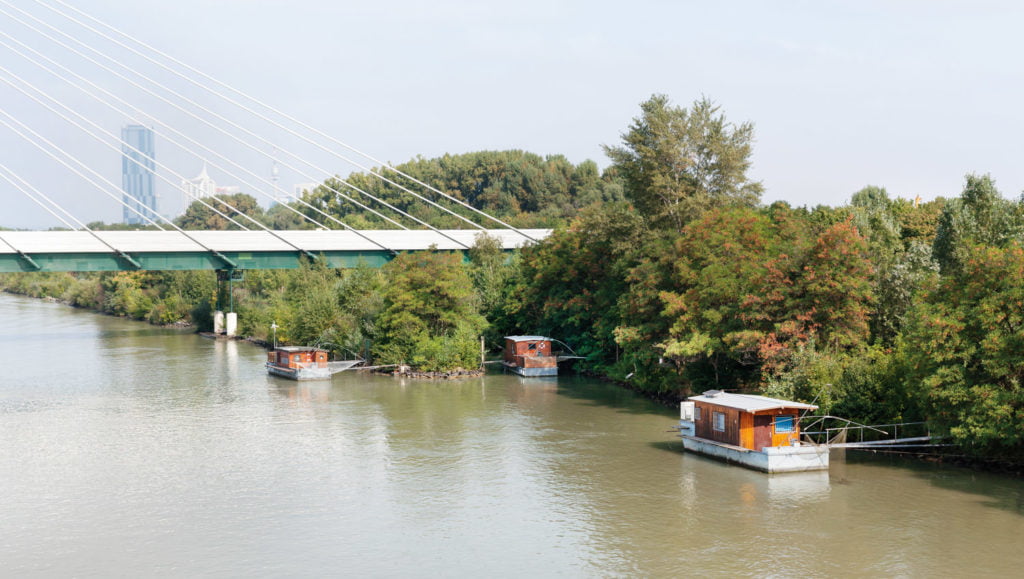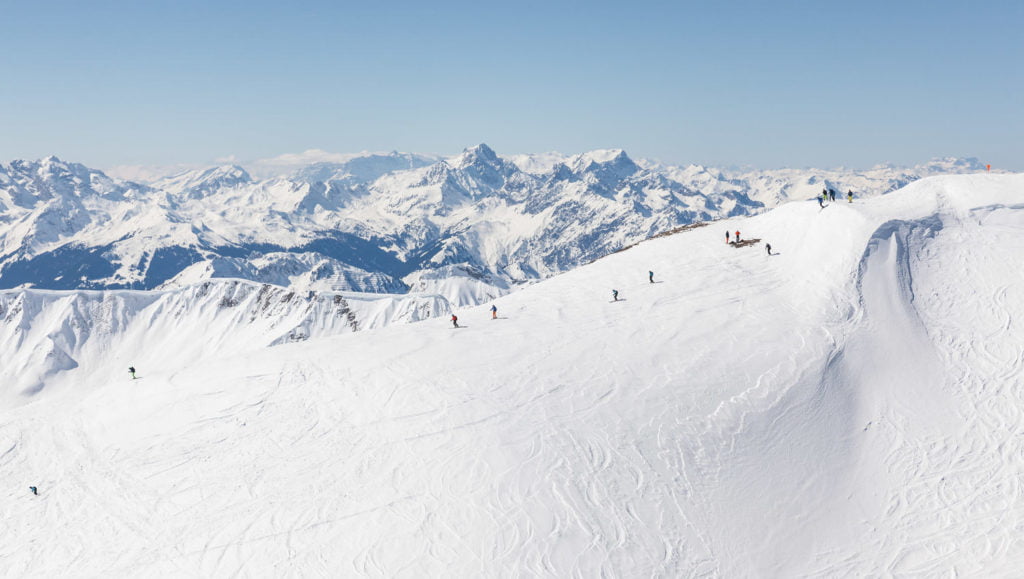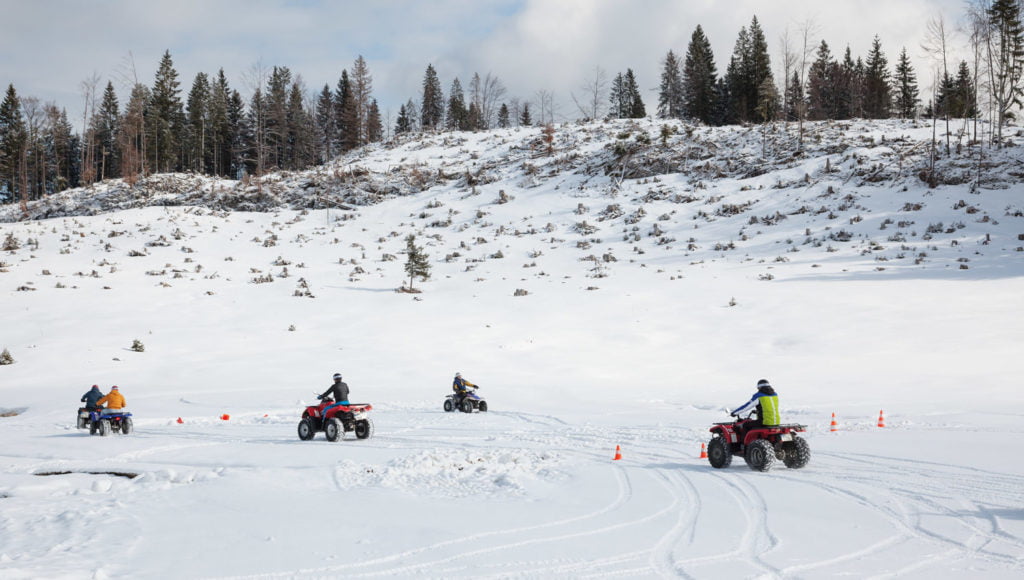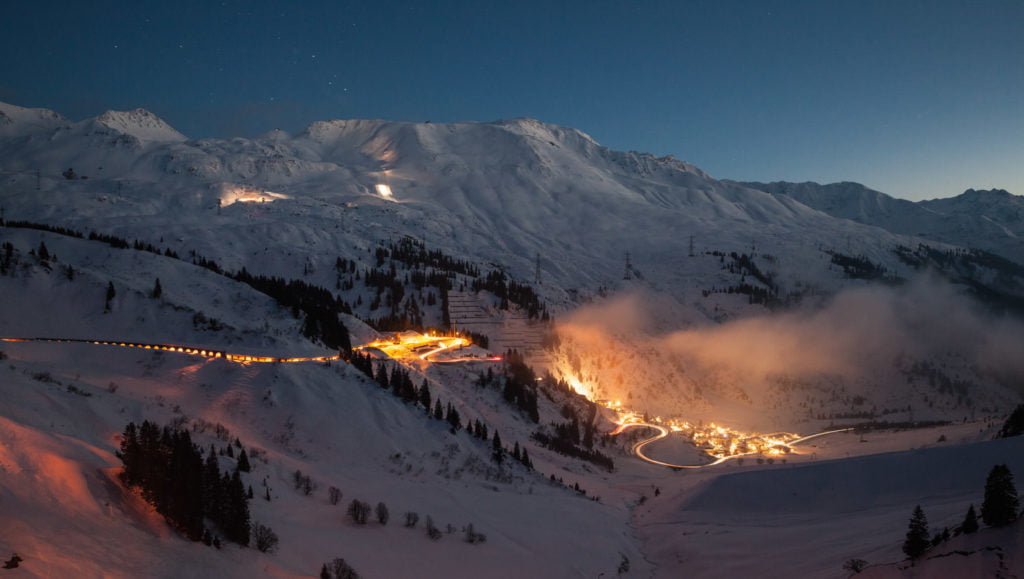Andrew Phelps
Over Land
Time and again, in between all my projects, I keep coming back to this landscape and the people who live there.
The Alps are a cultural asset. The way in which we deal with nature reflects our society, our craving for an experience of nature at a time when the term ‘wilderness’ has become increasingly alien to us.
From Vorarlberg to Vienna I visited places where people make use of, enjoy, alter, and shape our natural environment.
Andrew Phelps
Andrew Pheps, born 1967 in Mesa Arizona. Lives and works in Salzburg.
www.andrew-phelps.com
If you had to pick a keyword for the societal phenomenon that Andrew Phelps has been observing for some years now, one of the terms would certainly be ‘outdoor experience sports’. This highly resourceful and therefore booming leisure industry covers all the traditional outdoor sports such as swimming and boating, skiing and surfing, but also more elaborate extreme sports such as climbing, paragliding and bungee jumping, all of which combine the outdoor experience with full-on action.
Phelps grew up in Arizona in the 1970s and 1980s, and for him life outdoors, trekking and camping out in the wilderness or rafting down the Grand Canyon was not associated in any way with this sort of leisure tourism. So, for him, the artificiality of these calculated activities, some of which are now packaged into action camps like Area 47, is all the more striking, activities where sport and the great outdoors are ‘packaged as experience tourism’, as field trips and tours graded according to age and ability, with the appropriate balance of genuine thrills and safety.
The promise of tapping into the many different opportunities that outdoor activities have to offer contrasts sharply with the countless apparatus and devices, the equip- ment and safety measures, the overnight stopovers and food supply stations that are needed to ramble through nature as conveniently and cosily as possible in search of the ultimate adrenalin rush. These outdoor adventure sports are typically characterised by action cams, with brand names like Adventure and Hero, which in recent years have captured in images all these sports where no-one has a hand free. In keeping with the trend towards selfies and the ‘I did it’ culture, they represent fun, action and courage, but also photographs taken from the immediate vantage point of the person involved.
By contrast Phelps’s photographs are neither wide-angled action-cam shots with the action-packed photographer constantly in the picture nor breathtaking sports reporter photos; instead, they maintain a critical distance from this type of leisure activity. Phelps pursues them with a cultural interest. How does this societal phenomenon manifest itself and where is it headed? Created between Vorarlberg and Vienna in 2016, wide open landscape often frame details of this exploration (of nature). “The logotype Hoamat [homeland] high above Kitzbühel suggests a familiarity with nature, but sporting achievements such as those of the surfer on the Almkanal are not featured as decisive moments of peak performances, but in the form of ‘ordinary’ moments that ultimately make up most of the events.” The sense you get when viewing these photographs is one of ambivalence; it characterises the photographs of prepared pistes set against the backdrop of pristine mountain ranges or the mountain panorama at Stuben, leaving it up to the viewer to decide whether what they see in those images are the romantic ski resort or the light pollution and its negative impact on nature itself.
In Nature de luxe, in 2004, Phelps already addressed the issue of the authenticity of the outdoor experience when he explored the culture of camping in the Alps, yet another form of organised and prefabricated outdoor experience. Then and now, he looks at how people use nature, how they tame it and exploit it, and the extent to which photography can do justice to nature and the experience itself.
Ruth Horak, born 1972 in Graz, is an art critic and curator. Lives and works in Vienna.
